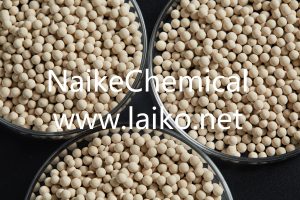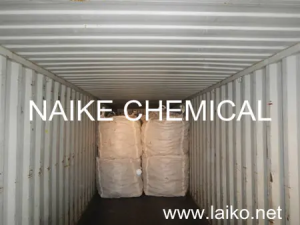Harnessing the Power of PSA Molecular Sieve for Sustainable Energy Solutions
In the pursuit of a sustainable future, finding efficient and environmentally friendly energy solutions is paramount. One technology that holds immense promise in this endeavor is Pressure Swing Adsorption (PSA) molecular sieve. With its ability to separate gases with precision, PSA molecular sieve is revolutionizing the way we harness sustainable energy, particularly in the context of hydrogen production. In this blog, we will explore how PSA molecular sieve can be harnessed as a powerful tool for sustainable energy solutions, specifically focusing on the production and utilization of hydrogen. Join us as we delve into the world of PSA molecular sieve and discover its role in driving a cleaner, greener energy landscape.
Understanding the Basics of PSA Molecular Sieve
PSA molecular sieve is a gas separation technology that employs selective adsorption to separate gases from a mixture. It utilizes an adsorbent material called molecular sieve, characterized by its intricate network of tiny pores. These pores act as molecular traps, selectively adsorbing certain gas molecules while allowing others to pass through. The cyclic operation of PSA involves stages such as adsorption, desorption, and product gas recovery.
The Significance of Hydrogen in Sustainable Energy Solutions
Hydrogen is a versatile and clean energy carrier with immense potential in sustainable energy solutions. It can be produced through various methods, including electrolysis of water using renewable energy sources like solar or wind power. Harnessing hydrogen as an energy source offers benefits such as zero carbon emissions, high energy density, and compatibility with a wide range of applications.
PSA Molecular Sieve for Hydrogen Production
PSA molecular sieve plays a vital role in the production of high-purity hydrogen gas for sustainable energy solutions. It allows for the selective adsorption of hydrogen molecules while efficiently removing impurities and unwanted gases from the feed gas mixture. This process results in a pure and concentrated stream of hydrogen gas that can be utilized in fuel cells, industrial processes, and transportation.
Applications of Hydrogen in Sustainable Energy Solutions
The versatility of hydrogen makes it a key component in various sustainable energy solutions. PSA molecular sieve-produced hydrogen can be employed in several applications, including:
-
Fuel Cells: Hydrogen fuel cells offer a clean and efficient method of generating electricity, with water being the only byproduct. They are used in vehicles, buildings, and portable power devices.
-
Power Generation: Hydrogen can be combusted in conventional power plants or utilized in gas turbines to produce electricity with minimal environmental impact.
-
Industrial Processes: Hydrogen is used as a feedstock in the production of chemicals and materials, such as ammonia, methanol, and steel.
-
Energy Storage: Hydrogen can be stored and utilized as a renewable energy storage medium, enabling the integration of intermittent renewable sources into the grid.
Advantages of PSA Molecular Sieve for Sustainable Energy Solutions
PSA molecular sieve technology offers several advantages for sustainable energy solutions:
-
High Purity: PSA molecular sieve enables the production of pure hydrogen gas, free from impurities that can hinder performance in fuel cells and industrial processes.
-
Energy Efficiency: The process operates at near-ambient temperatures, reducing energy requirements compared to traditional hydrogen production methods.
-
Scalability: PSA molecular sieve systems can be designed and scaled according to specific requirements, allowing for flexible implementation in various settings.
-
Reliability and Continuous Operation: PSA molecular sieve enables continuous production of hydrogen, ensuring a steady and reliable supply for energy applications.
PSA molecular sieve is a powerful tool in the quest for sustainable energy solutions, particularly in hydrogen production. By harnessing its selective adsorption capabilities, PSA molecular sieve enables the generation of high-purity hydrogen gas for applications such as fuel cells, power generation, and industrial processes. As the world moves towards a cleaner and greener energy landscape, PSA molecular sieve technology plays a pivotal role in driving the transition. By embracing this technology, we can unlock the potential of hydrogen as a sustainable energy carrier, reduce our carbon footprint, and build a more sustainable future for generations to come.



